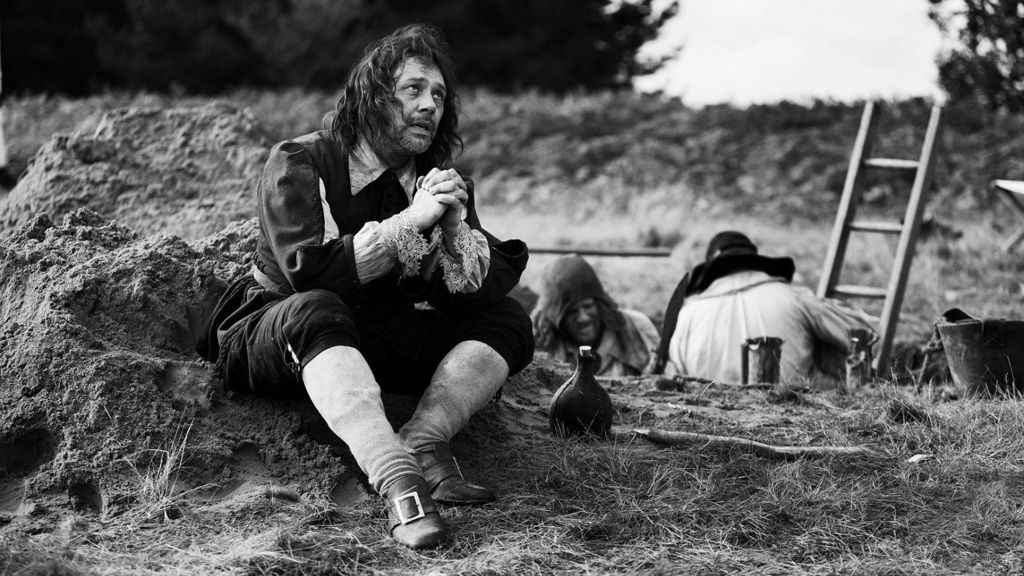 (4 / 5)
(4 / 5)
“These late eclipses in the sun and moon portend no good to us.”
— William Shakespeare, King Lear, Act I, Scene ii
Wind rustles the dry grass; in the distance the shriek of cannonade, the resounding boom of cannonballs in dirt. All this is behind us now, behind them. Far from the battlefield, a motley band of civil war deserters search for meaning and treasure.
A Field in England, Ben Wheatley’s newest film is two parts acid trip to one part grisly morality play. Wheatley, never one to shy away from the esoteric, fully embraces the weirdness of this as his small, tightly-knit cast of types – four rogues to one gentleman – fight struggle against the brutality and meaningless of existence.
The de facto protagonist of the piece in Reece Shearsmith’s Whitehead, practising alchemist and self-professed coward, sent on a mysterious mission by his unseen master. With him are Ryan Pope’s belligerent Cutler, Richard Glover’s Friend, an amiable simpleton, and Peter Ferdinando’s inscrutable Jacob.
It’s not until the leering, devilish O’Neill, played by Michael Smiley, appears on-screen that the film acquires its purpose, though what that purpose is is never truly clear.
What is certain, however, is Wheatley’s profound interest in the nature of suffering: Friend remarks at one point that he believes they shall sample a better quality of suffering in O’Neill’s company. Indeed, all that can be hoped for in this turbulent era is to suffer well.
Whitehead and his troupe (or should that be “O’Neill and his troupe”, as they become) are denied even that. They dig, and beat, even shoot, each other. The pious Whitehead is subjected to unimaginable tortures in O’Neill’s tent and emerges, gibbering, as a demented human bloodhound.
The drama is simple, often theatrical – the troupe on occasion appear frozen in tableaux – and Jim Williams’ wind and string soundtrack thrums with power.
Ultimately, though, the playing with life and death, the uncertainty surrounding reality and fantasy, lowers the stakes. If we cannot be sure what is real or what it means, how can any of it matter? One memorable sequence in A Field in England sees the cast pulling mightily on a rope, the other end of which we never see – a tug of war with the ineffable. That just about sums up the film as a whole.
Though often elliptical and obscure, this is a film to be treasured. Amy Jump’s script is rich and salty and Wheatley has a real feel for the British countryside, be it as the hunting ground for hit-men as in Kill List or home to Sightseers‘ homicidal caravaneers.
With its Jacobean setting and Shakespearean undertones, A Field in England feels like Lear on the blasted heath cursing at the storm (if Lear had been on shrooms at the time). Profound, disturbing, full of omens and body horror, it’s not so much a film you watch as undergo. It’s about as different as cinema gets from my most recent review, but there’s a certain twisted nobility to its experimentation.
